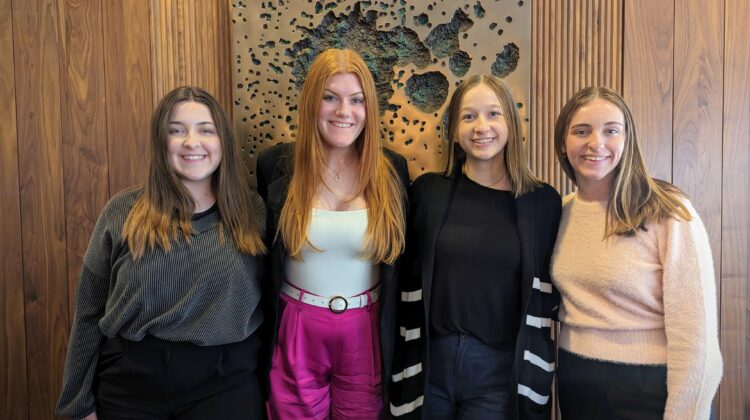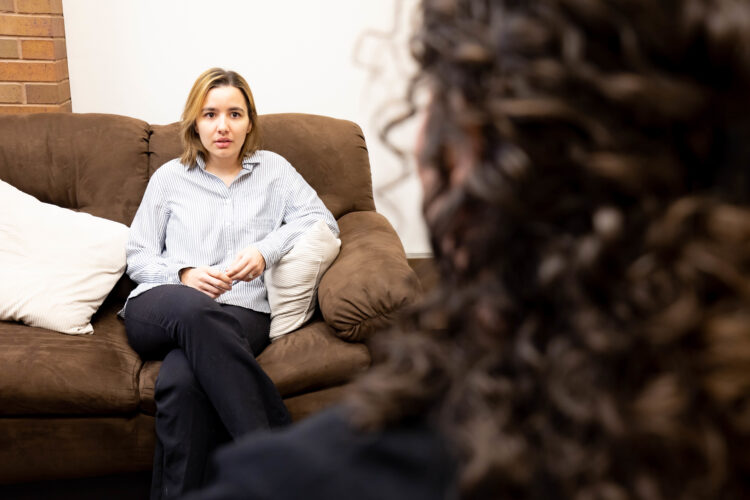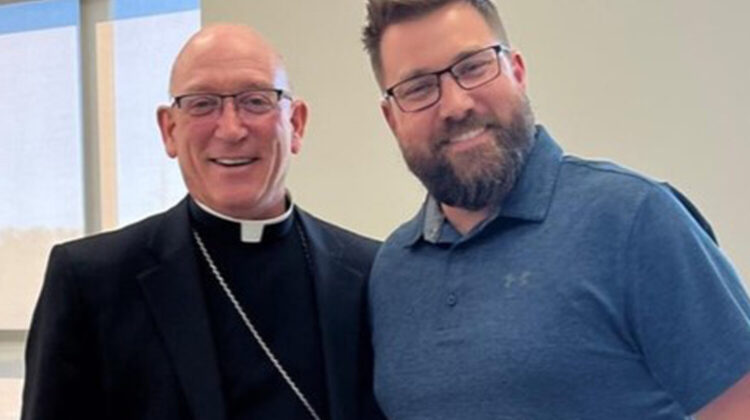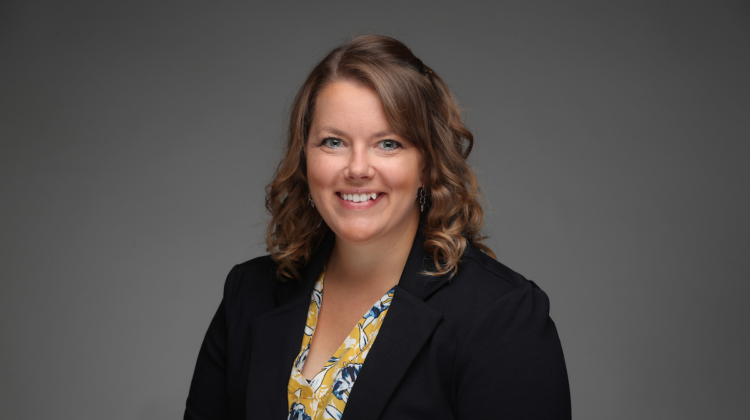In her courses for the elementary education program, Missouri State University’s Dr. Amber Howard teaches theories on competency-based-learning (CBL).
MSU teacher candidates have brought these theories to the classroom through student teaching.
Earlier this semester, assistant professor Howard and a group of MSU student teachers spoke at the Missouri Association of Colleges for Teacher Education (MACTE) conference in Columbia, Missouri.
The students presented two different sessions. The first session was a panel discussion featuring Abbie Adkins, Tyler Crane, Avery Davis and Alyssa Mayo. Crane also presented at the second session.
CBL and ungrading
The group panel discussed the K-12 CBL initiatives in the state and how MSU is modeling CBL for their teacher candidates. The four students also shared their personal experiences with ungrading and standards-based grading. Ungrading refers to the practice of building a focus on mastering competencies instead of points and letter grades.
“I’m so proud of how all four students spoke so articulately about their experiences,” Howard said. “Several teacher educators from across the state said this was their favorite session of the whole conference and I could not agree more.”
Elevating the perception of the teaching profession
In her individual presentation, Crane shared her research about improving the perception of teachers through the relationship among teachers, students and their families.
“Tyler did a phenomenal job sharing her findings so articulately and facilitating conversation with teacher educators across the state around such an important topic,” Howard said. “I definitely had one of those proud teacher feelings watching her present.”
Crane notes it was an honor to present at the conference.
“The conference was a very valuable and unforgettable experience,” Crane said. “This was my first time attending an education conference. Getting to meet, hear from and present to other professionals in education was fulfilling.”
Howard is grateful for the support from College of Education Dean Barri Tinkler and the college to take students to this year’s MACTE.
“Getting students involved in activities like sharing at MACTE centers their voices in rooms where decisions are being made,” Howard said. “It’s vital to our education process. I’m so glad I had the opportunity to give them this platform.”





